The Viking Mindset: Ragnar's Death Song and Other Sagas
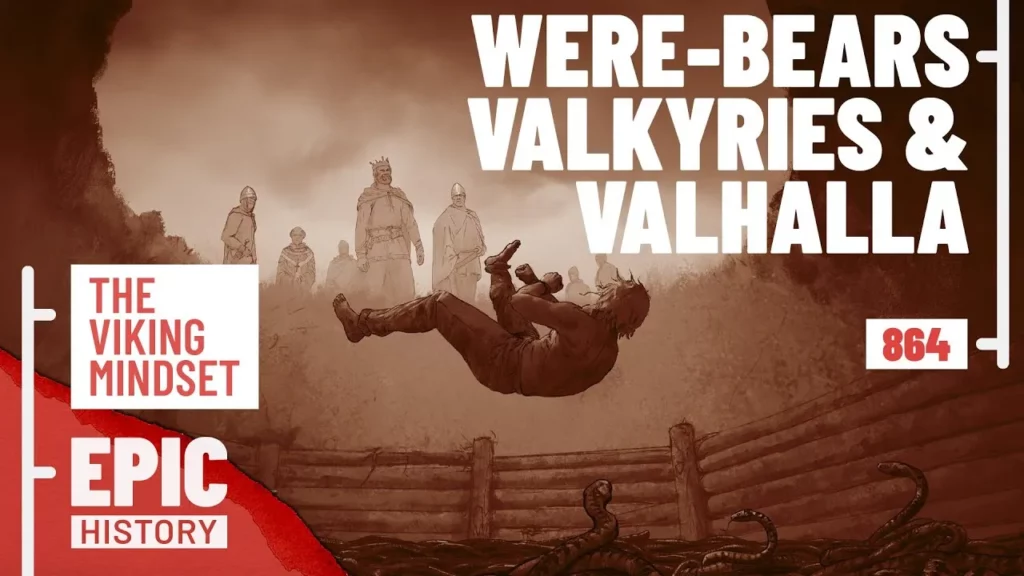
The lesson explores the Viking mindset through the lens of their sagas, particularly focusing on Ragnar’s death song, the *Krákumál*, which reflects a fearless acceptance of death and a longing for the afterlife with Odin. It also examines the blend of reality and fantasy in the *Saga of Hrolf*, highlighting characters like the were-bear Bödvar Bjarki, and discusses the downfall of the Jomsvikings due to their adherence to boastful traditions. Additionally, it touches on Viking beliefs about the afterlife, emphasizing the significance of Valhalla and the Valkyries in their culture.
Apollo Program: A Disastrous Beginning

The lesson discusses the early challenges and tragedies of the Apollo Program, initiated by President John F. Kennedy’s ambitious goal to land a man on the Moon by the end of the 1960s. It highlights the innovative engineering solutions proposed by NASA scientists, particularly the dual-spacecraft approach suggested by John Houbolt, as well as the tragic loss of the Apollo 1 crew due to a cabin fire during a test. Despite these setbacks, the successful Apollo 7 mission and the groundbreaking Apollo 8 mission, which orbited the Moon, marked significant progress towards achieving the goal of a lunar landing.
Grouchy's cavalry charge destroys the Prussians at Vauchamps
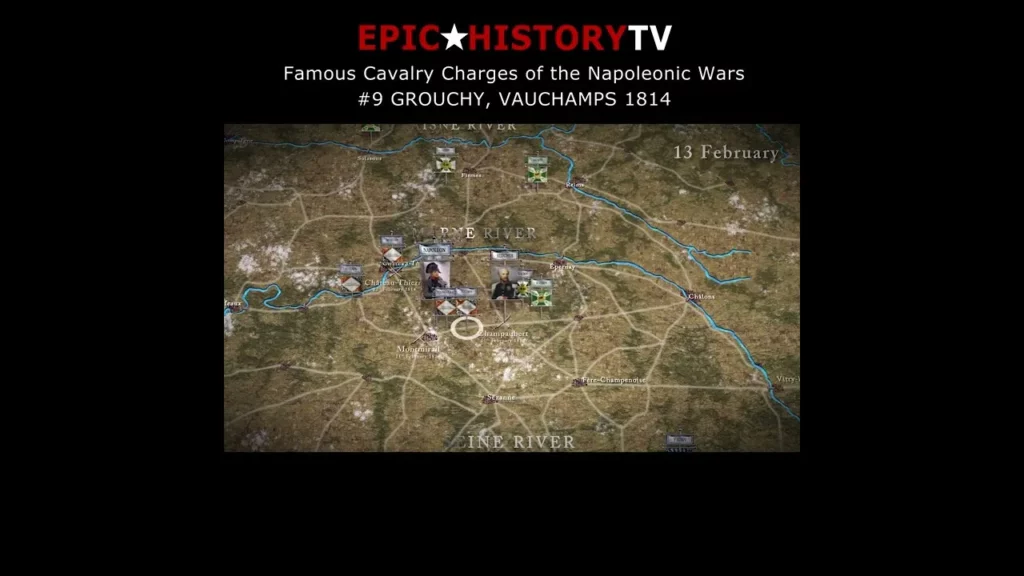
The lesson on “Grouchy’s Cavalry Charge: A Decisive Victory at Vauchamps” highlights Napoleon Bonaparte’s strategic brilliance during his campaign against General Blücher’s Prussian forces. By effectively utilizing cavalry to outflank the enemy and executing swift maneuvers, Napoleon achieved a significant victory at the Battle of Vauchamps, inflicting heavy casualties on the Prussians while sustaining minimal losses himself. This engagement underscores the importance of strategic planning, adaptability, and decisive action in military leadership, offering valuable insights that extend beyond the battlefield into broader contexts of leadership and problem-solving.
The disastrous cost of Napoleon's invasion of Spain
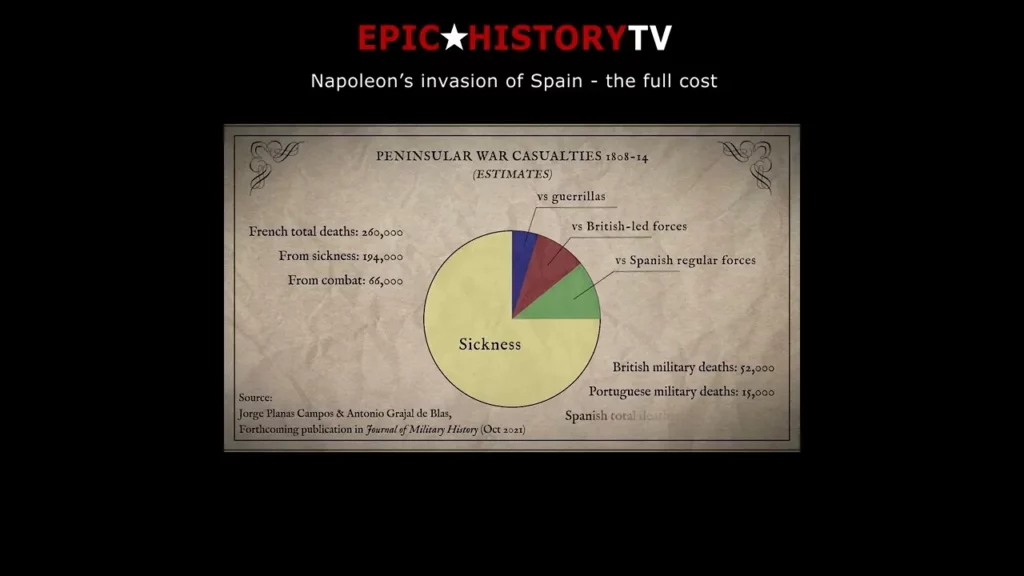
Napoleon’s invasion of Spain led to the Peninsular War, resulting in a staggering human cost of approximately 260,000 French lives, primarily due to sickness, alongside significant casualties for British and Portuguese forces, and an estimated half a million Spanish civilians. This campaign, driven by Napoleon’s overconfidence and misjudgment of Spanish resistance, drained French resources and weakened his control over Europe. The conflict serves as a cautionary tale about the importance of understanding cultural and political dynamics in military strategy and the profound human toll of war.
Napoleon's Marshals: Bernadotte, Augereau, Lefebvre, Mortier, Marmont.
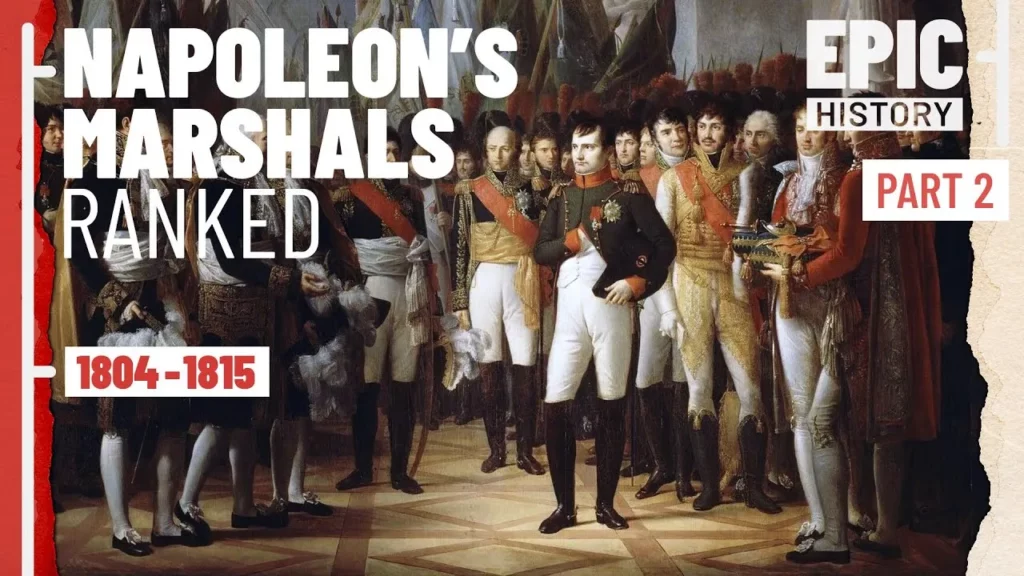
The lesson explores the lives and legacies of five of Napoleon’s Marshals: Bernadotte, Augereau, Lefebvre, Mortier, and Marmont, each of whom played significant roles in military history during and after the French Revolution. While they achieved notable successes and held prestigious ranks, their relationships with Napoleon and their eventual fates varied greatly, reflecting the complexities of loyalty and ambition in a tumultuous era. The lesson emphasizes the enduring impact of these figures, particularly Bernadotte, whose descendants still reign in Sweden today.
Revolt Against the Tsar: The Decembrists
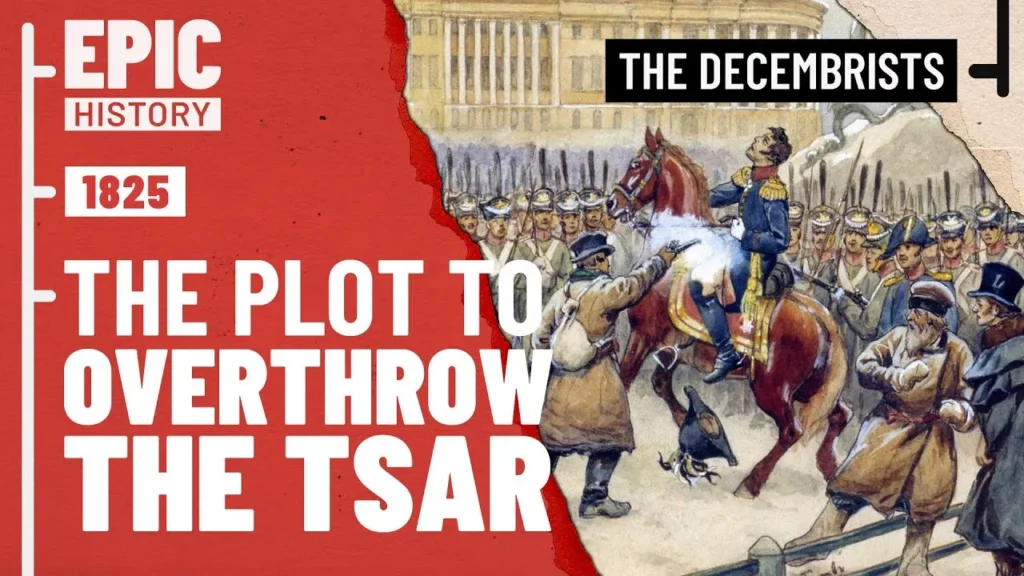
The Decembrist uprising of December 1825 was a significant yet unsuccessful attempt by a group of army officers in Russia to challenge the autocratic rule of Emperor Nicholas and advocate for political reform, including the abolition of serfdom. Despite their military experience and initial support, the Decembrists faced disorganization and overwhelming government forces, leading to a brutal suppression of the revolt. Although the uprising failed, it left a lasting legacy, inspiring future generations to pursue reform and highlighting the growing discontent with autocratic governance in Russia.
Napoleon's Marshals: Bessières, Macdonald, Masséna.
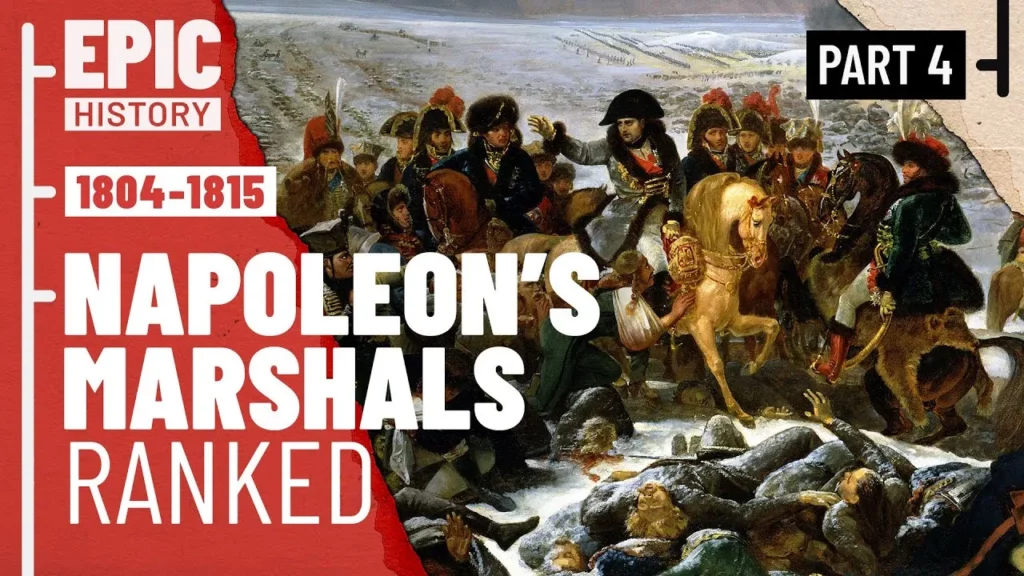
The lesson explores the significance of the title of Marshal in Napoleon’s military hierarchy, emphasizing its historical roots and the duality of loyalty and merit in the selection of marshals. It highlights the life and career of Marshal Jean-Baptiste Bessières, illustrating his rise through the ranks due to his loyalty to Napoleon and his military contributions, particularly in key battles. The lesson also reflects on the broader implications of reinstating the Marshal title, showcasing the tension between revolutionary ideals and the necessity for structured military leadership during the Napoleonic era.
Hear Alexander the Great's Legendary Speech in Ancient Greek!
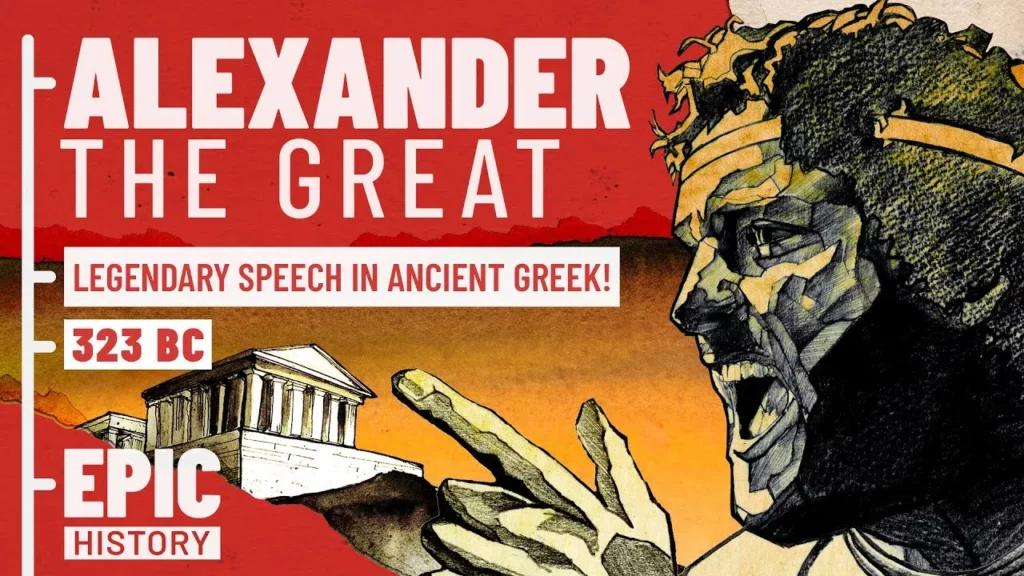
In this lesson, we explore Alexander the Great’s legendary speech to his soldiers, highlighting his father’s legacy, his own military achievements, and the sacrifices he made alongside them. Alexander emphasizes the shared experiences that forged strong bonds with his troops and addresses their desire to return home, urging them to reflect on their conquests and loyalty. Ultimately, the speech serves as a powerful reminder of leadership, unity, and the commitment required to build a vast empire.
Napoleon's Marshals: Saint-Cyr, Oudinot, Victor, Murat.
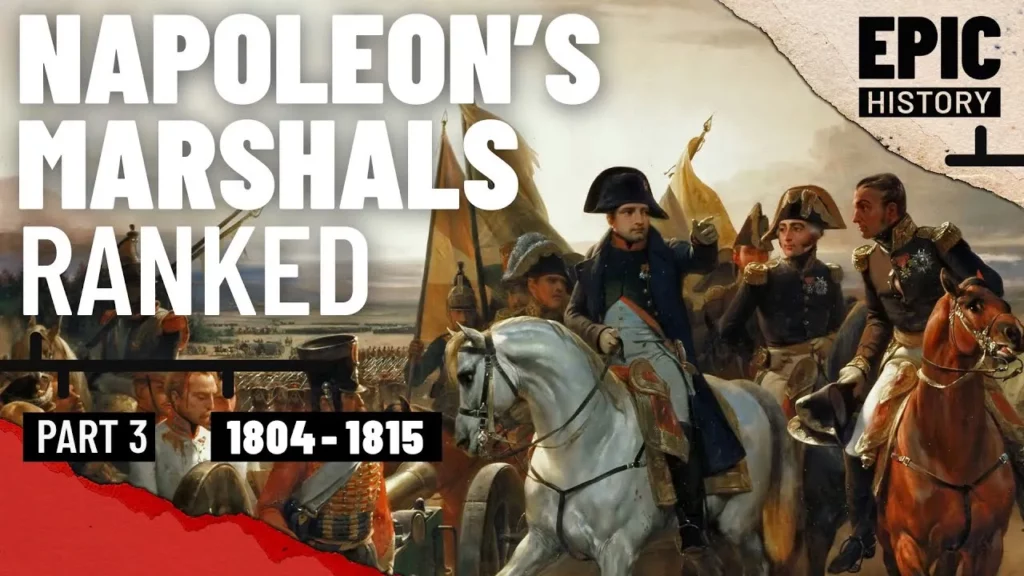
The lesson explores the lives and careers of four notable Marshals of Napoleon: Saint-Cyr, Oudinot, Victor, and Murat, highlighting their military achievements and personal challenges. Each Marshal exemplified the Latin motto “Terror in war… ornament in peace,” reflecting their dual roles as fierce commanders and political figures during a transformative period in French history. Despite their successes, their careers were often complicated by political disagreements and personal disillusionments, particularly as the empire faced decline.
Napoleon's Marshals: Berthier, Lannes, Davout.
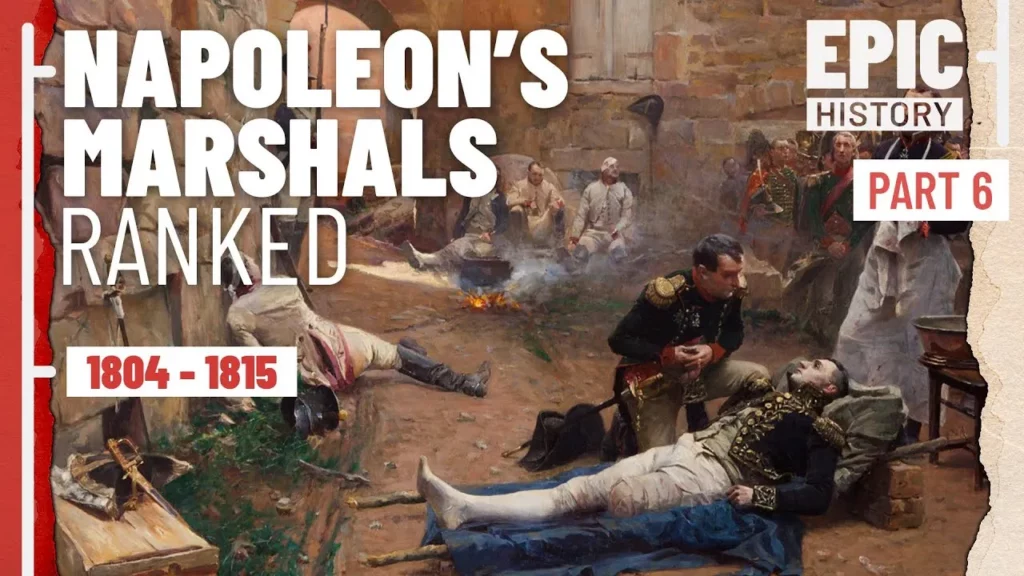
The lesson explores the significant contributions and legacies of three of Napoleon’s most notable Marshals: Berthier, Lannes, and Davout. Each Marshal exemplified unique strengths—Berthier’s organizational brilliance, Lannes’ courageous leadership, and Davout’s strategic acumen—while navigating the complexities of military command during the French Revolutionary Wars and the Napoleonic era. Their stories illustrate the dual roles of military leaders as both warriors and peacemakers, reflecting the broader themes of loyalty, ambition, and the impact of individual leadership in shaping history.